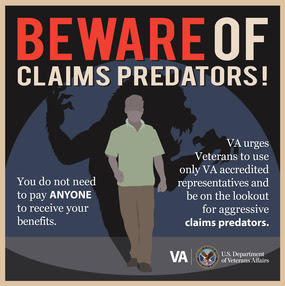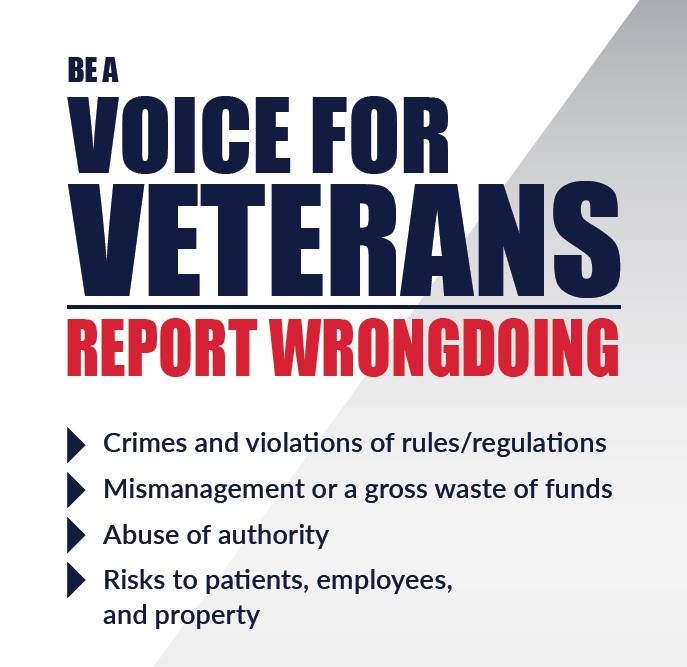MST Compensation and Pension Exams
MST compensation and pension exams are Department of Veterans Affairs (VA) psychological (or psychiatric) evaluations conducted with veterans who have filed a disability compensation claim for PTSD or another mental disorder due to military sexual trauma (MST).
This page is for psychologists who conduct C&P exams. I have another page for vets: Advice for Veterans » C&P Exams - Military Sexual Trauma.
Table of Contents
- Key Points
- MST Compensation and Pension Exams
- Psychologists Are Not Detectives
- Clinical Assessment of PTSD
- C&P Exams & Causal Determinations
- Additional Considerations
- Footnotes
Key Points
- Federal regulations indicate that VA should ask a psychologist-examiner "for an opinion as to whether [available evidence] indicates that a personal assault occurred."1
Psychologist-examiners should carefully consider how to respond to such questions. We recommend avoiding any language in your opinion that states or implies that a crime was committed.
Prosecutors indict people for crimes. Psychologists determine if a veteran has PTSD due to a Criterion A traumatic stressor. - You can conclude that a veteran has service-related PTSD without any of the behavioral markers mentioned in the regulation and the M21-1 Manual.
Behavioral markers are (roughly speaking) legal indicators, they are not diagnostic criteria.
The same reasoning applies to the converse: you can conclude that a veteran does not have service-related PTSD even if there are some behavioral markers.
PTSDexams.net is an educational site with no advertising and no affiliate links. Dr. Worthen conducts Independent Psychological Exams (IPE) with veterans, but that information is on his professional practice website.
MST Compensation and Pension Exams
Military sexual trauma is an event, not a diagnosis. However, sexual assault often causes posttraumatic stress disorder, depression, and other mental disorders.
Because of an ignominious history of blaming victims and protecting perpetrators in the U.S. military, the VA promulgated regulations, polices, and procedures designed to help veterans receive psychological and medical treatment, as well as disability benefits for mental and physical illnesses caused or exacerbated by military sexual trauma.
As with all VA disability claims, the Veterans Benefits Administration (VBA) must help veterans "develop" their claim, i.e., collect evidence in support of the veteran's claim.2
In the context of mental disorder disability claims, this "duty to assist" almost always includes referring the veteran to a psychologist or psychiatrist for an MST compensation and pension exam (C&P exam).3,4
Unfortunately, the language of many VBA exam requests often presents problems for examiners. For example, consider this VBA examination request language and the psychologist's response:
VA: "Does the available evidence indicate that a personal assault occurred?"†
Psychologist: "I'm not a detective! I can't say that."
†38 C.F.R. § 3.304(f)(5)("VA may submit any evidence that it receives to an appropriate medical or mental health professional for an opinion as to whether it indicates that a personal assault occurred.").
Psychologists Are Not Detectives
Federal regulations indicate (or at least imply) that C&P examiners—psychologists and psychiatrists—possess the education, training, and experience necessary to determine if a crime (sexual assault) occurred.
Is that true? Are we competent (in the legal sense) to answer such a question?
No. We are not detectives or investigators. We do not possess the specialized education, training, and experience that would prepare us to investigate assault allegations and determine if a crime has been perpetrated.
So what should you do when asked for “an opinion as to whether [available evidence] indicates that a personal assault occurred”? We suggest:
(a) Recognize that unlike other mental disorders, the PTSD diagnostic criteria require that you identify a causal agent, the traumatic stressor (Criterion A). This is true for clinical evaluations just as much as for forensic exams. Therefore there is nothing wrong with, if possible, determining the cause of a veteran's PTSD. At the same time we suggest not asserting something like, "the veteran was raped by another service member, although he was never charged with the crime."
(b) Instead, especially if behavioral markers offer persuasive evidence of sexual assault, borrow language from the VBA's M21-1 Adjudicative Procedures Manual, e.g., "the behavior changes demonstrated by the Veteran are consistent with the expected reaction or adjustment of a person who has been subjected to an assault."
 Painting by Wassily Kandinsky (1866–1944) [public domain]
Painting by Wassily Kandinsky (1866–1944) [public domain]Clinical Assessment of PTSD
First, let's step away from the C&P exam context and consider how we approach the clinical assessment of patients who present with post-traumatic stress symptomatology and who report experiencing a sexual assault many years ago.
Although military sexual trauma can cause mental disorders other than PTSD, e.g., depression, PTSD is the most common diagnosis so I will discuss this issue as it pertains to sexual assault(s) causing post-traumatic stress disorder.
See if you would agree with the following statement about conducting a clinical (as opposed to forensic) PTSD assessment, i.e., an assessment designed to help reach an accurate diagnosis and to guide treatment planning.
If you conduct a thorough, evidence-based clinical assessment, and you conclude that the patient suffers from PTSD, you will have in most instances also concluded that the patient experienced a sexual assault.
Stated a bit differently, since the diagnosis of PTSD requires that the person experienced a Criterion A stressor, determining if an assault occurred is part and parcel of the PTSD assessment process.
Thus, in the clinical setting, even if a patient reports several PTSD symptoms, you will not diagnose PTSD if you do not believe the patient was assaulted. Conversely, if you believe the patient was assaulted, you will most likely diagnose PTSD.
The same logic applies to MST compensation and pension exams.
But even if the diagnosis is not PTSD, e.g., sexual assault can cause other disorders such as depression, there is another reason why we can make causal determinations during an MST compensation and pension exam.
C&P Exams & Causal Determinations
Making a causal determination is not unusual for a C&P exam. In fact, when conducting almost any mental disorder C&P exam, we make causal determinations.5
For example, service-connected medical disorders (e.g., chronic pain, Parkinson's disease), often cause mental disorders, particularly depressive illness. In such secondary disorder claims, we must determine (1) if the veteran has a mental disorder; and, if so (2) if that mental disorder is "proximately due to or the result of" the service-connected medical illness.6
MST compensation and pension exams are unique because the purported cause is a crime. But, as noted earlier, in an MST compensation and pension exam, we do not conduct a criminal investigation, and in our C&P exam report, we do not give an opinion stating whether or not a crime occurred.
If we conclude that a veteran has PTSD due to an in-service sexual assault, we simply state that, i.e., we diagnosis PTSD due to a Criterion A stressor, just as we would do if it were a clinical (as opposed to forensic) psychological evaluation.
 Wassily Kandinsky (1866–1944)
Wassily Kandinsky (1866–1944)Additional Considerations
There are a few other things to consider regarding MST compensation and pension exams.
(1) The language in the VBA's M21-1 Adjudication Procedures Manual more nuanced) is more precise than the wording in the regulation [38 C.F.R. § 3.304(f)(5)]. For example, the Manual instructs VBA staff to "request a medical opinion as to whether the credible factual evidence of behavior changes demonstrated by the Veteran is consistent with the expected reaction or adjustment of a person who has been subjected to an assault."7
Thus, you could write in a report: "the veteran's rapid escalation of drinking to intoxication and multiple disciplinary infractions are consistent with the expected reaction or adjustment of a person who has been subjected to an assault."
(2) Keep in mind that 38 C.F.R. § 3.304(f)(1) indicates that a "veteran's lay testimony alone may establish the occurrence of the claimed in-service stressor."
Thus, we must remember to give at least some credence to a veteran’s self-report. At the same time, "may establish the occurrence of" is not the same as saying "proves the occurrence of”.
(3) I recommend a careful reading of the language in 38 C.F.R. § 3.304(b)(1) and (2) as it emphasizes the examiner’s (and adjudicator’s) obligation to do the hard work of comparing, contrasting, analyzing, and integrating multiple sources of sometimes divergent information.
(4) Reading that regulation [38 C.F.R. § 3.304(b)] should also make it clear that an examiner's conclusions regarding etiology must include a cogent explanation (rationale) for their opinion.
Rationales are always important when providing a medical opinion, but perhaps even more so for MST compensation and pension exams. (VA calls opinions by all examiners "medical" whether the examiner has a medical degree or not.)
(5) If an examiner cannot reach a conclusion without resorting to mere speculation, they should explain why, and their explanation must address all the issues delineated by the appeals court in Jones v. Shinseki, 23 Vet. App. 382, 387–390 (2010).
(6) Finally, if the evidence is in equipoise, i.e., 50/50, then simply say that. For example:
It is at least as likely as not that the veteran suffers from post-traumatic stress disorder (PTSD) as a result of the sexual assault she described in her claim and during the present examination.
MST Compensation and Pension Exams: Footnotes
1. 38 C.F.R. § 3.304(f)(5).
2. Duty to assist claimants, 38 U.S.C. § 5103A.
3. Medical examinations for compensation claims, 38 U.S.C. § 5103A(d).
4. Examining the Backlog and the U.S. Department of Veterans Affairs’ Claims Processing System, Hearing before the Subcomm. Disability Assistance & Memorial Aff. of the H. Comm. Veterans Aff., 110th Congress 63-65 (2008), https://perma.cc/CX68-62CH (statement of Michael McGeary, Senior Program Officer & Study Dir., Comm. Med. Evaluation Veterans Disability Benefits, Bd. Mil. & Veterans Health, Inst. of Med., Nat'l Acad.) ("In nearly every case, VBA has applicants undergo a compensation and pension, or C&P, examination performed by a Veterans Health Administration (VHA) or contractor clinician.")
5. That statement ("when conducting almost any psychological C&P exam, we make a determination about causation") applies only to Initial exams—it does not apply to Review exams.
6. Disabilities that are proximately due to, or aggravated by, service-connected disease or injury, 38 C.F.R. § 3.310.
7. Veterans Benefits Admin., Dep’t Veterans Affairs, Interpretation of Behavioral Changes as Markers of Personal Trauma, M21-1 Adjudicative Procedures Manual, pt. VIII, subpt. iv, ch. 1, sec. E, topic 1, block e (July 29, 2021) https://perma.cc/G7BM-ANLM
 Veterans Administration logo
Veterans Administration logoSubscribe to receive new articles and other updates
What Do You Think?
I value your feedback!
If you would like to comment, ask questions, or offer suggestions about this page, please feel free to do so. Of course, keep it clean and courteous.
You can leave an anonymous comment if you wish—just type a pseudonym in the "Name" field.
If you want to receive an email when someone replies to your comment, click the Google Sign-in icon on the lower right of the comment box to use Google Sign-in. (Your email remains private.)
↓ Please comment below! ↓



